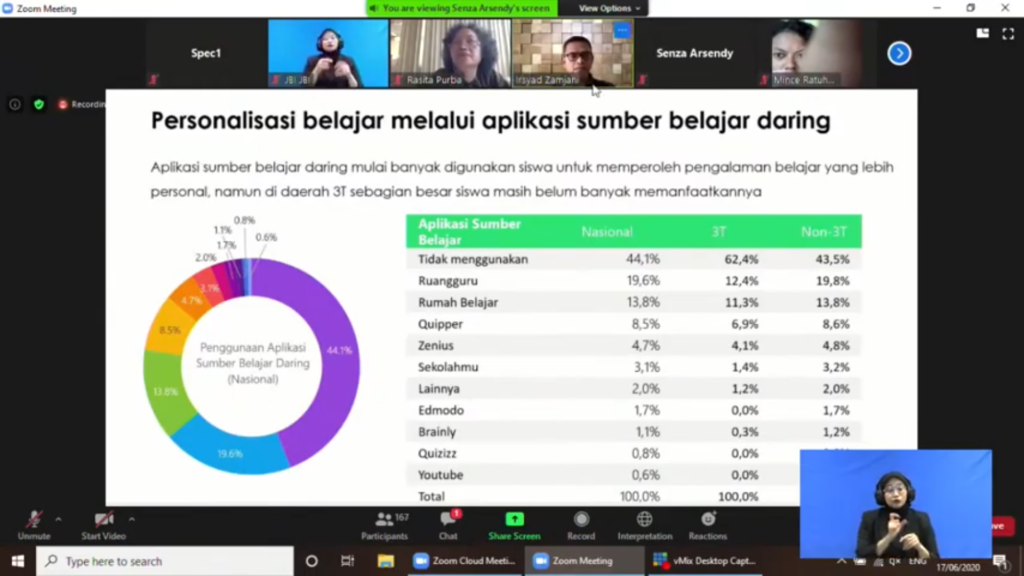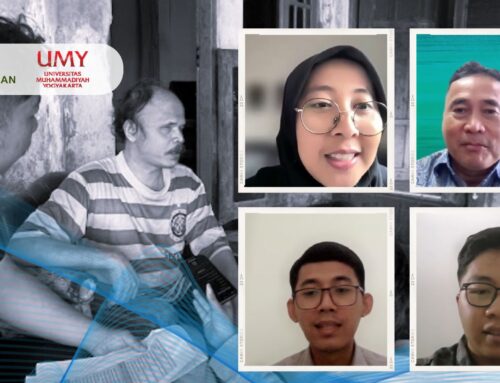Forum Kajian Pembangunan in June 2020 was hosted by Program Inovasi untuk Anak Sekolah Indonesia (INOVASI), a joint program of the Indonesian and Australian governments aimed at understanding how student learning outcomes in literacy and numeracy can be improved in diverse primary schools and districts across Indonesia. Two main webinars were organised with INOVASI, both on the topic of learning from home (belajar dari rumah) due to the COVID-19 pandemic. The first one, held on 17 June 2020 featured the findings from surveys held by INOVASI, INSPIRASI Foundation, and the Indonesian Ministry of Education and Culture. More than 200 people participate on the Zoom webinar, with hundreds more watching on YouTube (link to videos and slides).
On 17 June, Nadia Azzahra (Center for Indonesian Policy Studies/CIPS) presented a policy paper on challenges and obstacles faced by the education system in implementing wide scale learning from home for school children. Rasita Purba (INOVASI) was discussant. The session raised a wide ranging and diverse array of issues faced by school children, teachers, parents and school principals in implementing learning from home mechanisms. It is clear that Indonesia will face a crisis of learning quality and increasing gap between poor households and rich households in terms of access to learning during the pandemic (summarized here).
Two other webinars were held in June. On 11 June Abdul Nasir (Crawford School of Public Policy, The Australian National University) presented his doctoral research on the type of mining fiscal system affects the amount of resource rents received by governments. Mining fiscal system is divided into the Gross Royal Tax (GRT) system with payment based on output and the Resource Rent Tax (RRT) system with payment based on profit. There are pros and cons for each system, but which is better at extracting resource rents? To answer this question, Abdul Nasir studied 82 oil and gas exporting countries. He also looked at whether the level of democracy and freedom in a country affect the countries’ ability to generate resource rents (link to summary).
The last webinar was held on 30 June featuring Berly Martawardaya (Institute for Development of Economics and Finance/INDEF) on the contribution of investment in information & communication technology (ICT) and patent on economic growth (summary plus video and slides). The linkages between innovation and economic growth are not easy to prove, and the session provided insight into methodology and a rich discussion on how to describe the evolution from patent rights to production, and to eventual economic growth.
*Thumbnail photo by Charles Deluvio on Unsplash





